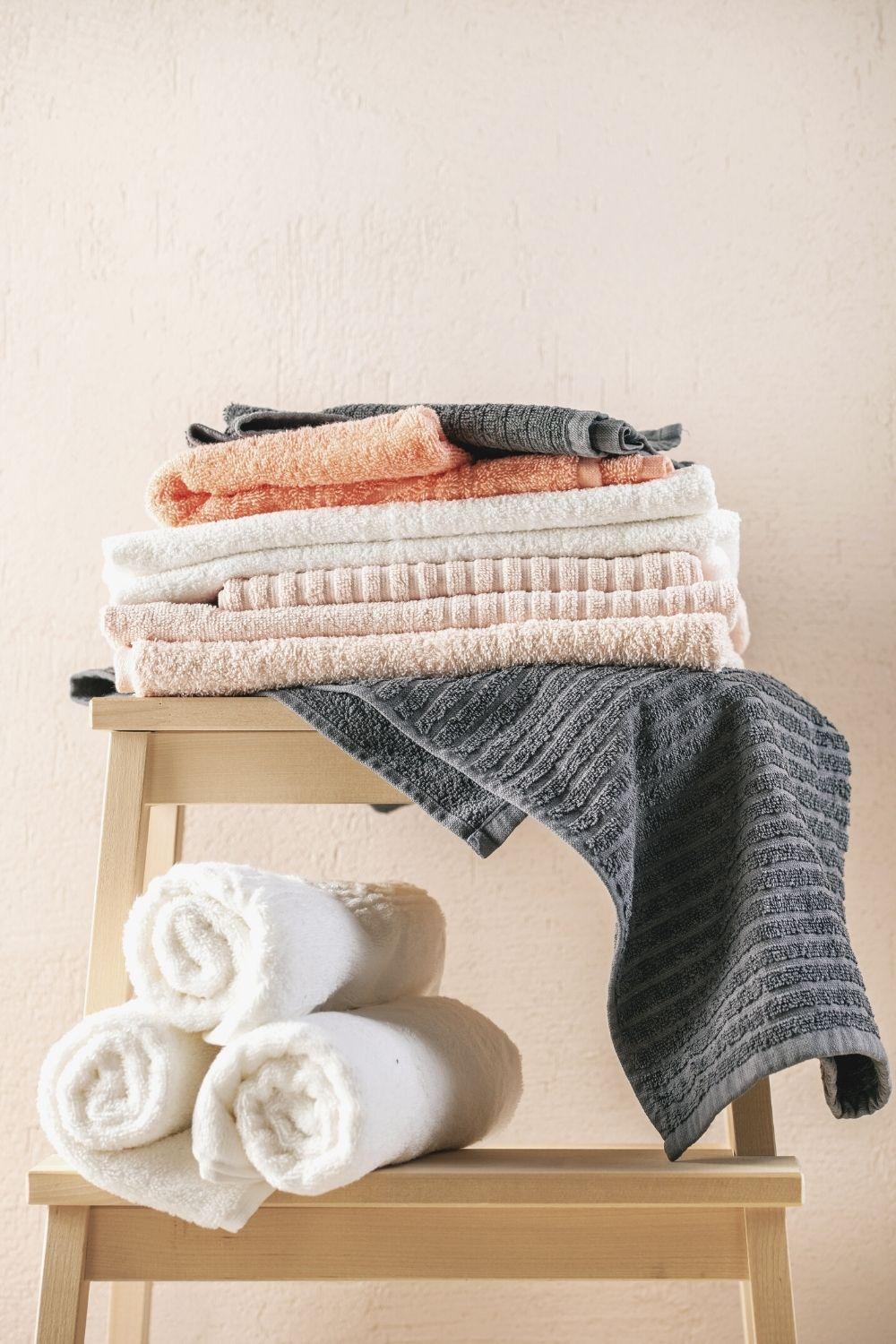Yes, it is always a good idea to wash new towels before use because new towels may be coated in a waxy fabric softener. The softener makes the towel look and feel great on the shelf of a shop but, unfortunately, also has the effect of reducing the towel’s absorbency.
New towels also tend to shed excess fluff, so washing them before use will help prevent the towel from leaving lint all over you.
Before you start washing your towels, be sure to check the care label. In general, new towels should be washed with similar colours in warm water (about 30 to 40 degrees) for the first few washes to remove excess lint.
GettyVinegar is one of the most versatile, natural household cleaners, and it can also work wonders on your laundry.
To remove build up from fabric softeners, simply add ½ a cup of white vinegar to the pre-wash cycle on your washing machine before washing with laundry detergent.
Fun fact: Vinegar features mould- and odour-busting properties, making it the secret to towels that smell fresh.
Experts at Sheridan advise against using silicon-based fabric softeners and conditions on your towels. Over time, these products can build up on the fibres, causing the towels to become less absorbent or develop a musty odour.
GettyThe experts at Sheridan recommend a eucalyptus-based laundry detergent.
Koala Eco’s Natural Laundry Liquid with Lemon Scented Eucalyptus and Rosemary essential oil is a great plant-derived option that will have your towels smelling fresh without the use of phosphates, ammonia, chlorine or synthetic chemicals.
How often you clean your towels is a personal preference, but under normal circumstances, a towel can be used three or four times (not days) before it needs to be washed.
While you can wash your towels in cold water, Sheridan’s experts recommend the occasional deep wash on a warm to hot cycle at 40-60 degrees to remove any bacteria, oils and smells.

Avoid overcrowding the machine as this may reduce the effectiveness of the wash and prevent the detergent from being rinsed out completely.
If the weather allows it, the best way to dry towels is on the clothesline. Not only will this reduce your energy bills, it will also expose the towels to UV light from the sun which may kill any remaining germs on the towels.
Towels dried in the sun also have a clean, 'line-dried scent' that a CSIRO study found can be attributed to chemical processes that occur on the surface of the fabric when exposed to UV light.
GettyUnfortunately, line drying towels can make them feel a little bit stiff. Adding vinegar to the rinse cycle should help with this, but if super soft, fluffy towels are what you’re after, a clothes dryer is your best option. After taking the towels out of the washing machine, give them a shake to open up their fibres.
Stick them into the dryer on a medium heat. Ensure towels are completely dry before folding them and placing them in your linen cupboard to avoid bacterial growth and musty smells.
Some say 5 to 10 years, others say no more than two years if you want completely absorbent, soft towels. Only you can tell when your towels need to be replaced.
A good trick when buying new towels is to opt for lighter colours. Lighter towels have less dye than darker towels, which helps them to stay fluffy and absorbent for a longer time. Plus lighter colours are less likely to fade, so look newer.
Also, always follow care instructions to make your towels last longer.
Not all fabrics are made the same and that should be kept in mind while washing towels. Many high-quality towels feature decorative trims to add a soft design element amid the hard, shiny surfaces of the bathroom.
If possible, use towels with specialty trims as accents only, so you can limit their laundering and reduce the wear on ribbon, rickrack, lace, or other decorative elements.
How to care for cotton and linen bedding correctly
How often should you wash wool blankets?
How to clean your front loader washing machine